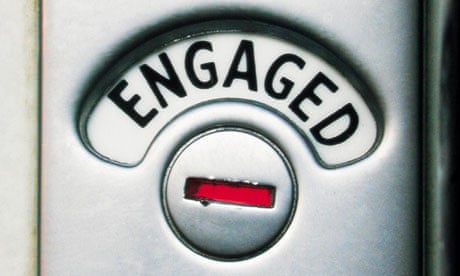You probably saw the news reports, a few weeks back, about a study suggesting that it's best to make important decisions on a full bladder, since you're likelier to exert self-control, and thereby choose more wisely. Mirjam Tuk, one of its authors, got the idea after drinking too much coffee during a long lecture. "All the coffee had reached my bladder," she said, "and that raised the question: What happens when people experience higher levels of bladder control?" That this was the first question to arise in her mind – as opposed to, say, "Where are the toilets?" – shows why some people are born to be psychology researchers. That the study got so much media coverage, meanwhile, demonstrates mainly that news editors think stories about weeing are hilarious. (Typical headline: "If you can hold it, urine for a big payoff" – which at least beats the title of the paper itself: "Inhibitory Spillover: Increased Urination Urgency Facilitates Impulse Control In Unrelated Domains".) And thus do the frontiers of human knowledge relentlessly advance, pausing only for occasional bathroom breaks.
Findings like this – about surprising mind-body connections, I mean, not about weeing specifically – seem to tumble out of universities on a monthly basis now. Some testify to the power of metaphor, mentioned here before, as in the finding that people who've just ascended an escalator give more generously to charity than those who've just descended. Others, though, shed light on a different notion: "embodied cognition". This is the striking idea that thinking, in some sense, is done by means of the body. We're accustomed to thinking of bodily movements as following from mental processes: of the body, in other words, as the marionette of the brain. Embodied cognition implies the situation may be more complex. Which raises a cheering possibility, given how much easier it usually is to control our body's movements than our mental lives: might some everyday mental challenges have simple physical fixes? Recent research suggests several strategies:
1 For added willpower, grip tightly. Like holding your bladder, firming your muscles seems to help you "firm [your] willpower… grasp long-range thoughts and, consequently, engage more effectively in self-control". In one study, researchers administered questionnaires to customers in a snack bar, instructing them to grip the pen in different ways; those with a tighter grip subsequently made healthier food choices.
2 For perseverance, fold your arms. Subjects in one set of experiments worked twice as long at anagrams – and did better – when induced to cross their arms. The researchers concluded the arm-folding itself was generating the desire to keep going.
3 For recollection, adopt an earlier posture. Memory retrieval is easier if you do it in the same posture as when you formed the memory – though this has been shown to work only for things that happened to you: it's not necessarily a great exam-revision strategy.
4 For creativity, create physical dissonance. Adopting a facial expression or physical posture that contradicts how you're feeling seems to trigger "lateral" thinking. Feeling calm? Act hyper. Feeling hyper? Act calm. Feeling happy? Act downhearted. Feeling sad? Grin. Feel like all this will make you look like an idiot at the next office brainstorming meeting? Yeah. Sorry about that.

Comments (…)
Sign in or create your Guardian account to join the discussion